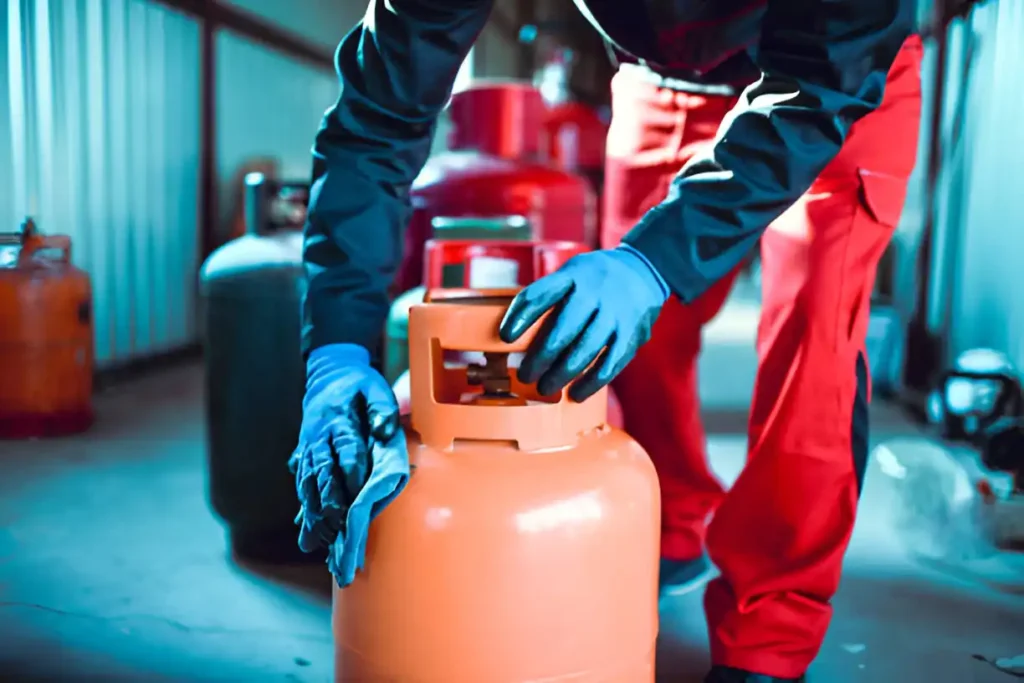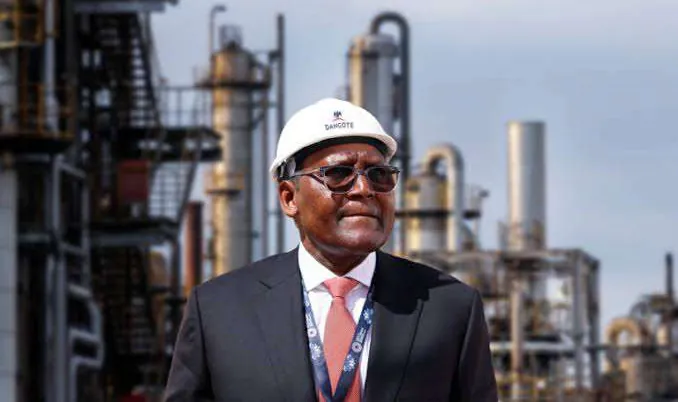The nation’s cooking gas market is heating up — and not just on the stovetop. A recent move by business mogul Aliko Dangote to crash the price of Liquefied Petroleum Gas (LPG), widely known as cooking gas, has sparked an uproar among Nigerian gas marketers, who now fear for the future of their businesses.
In bold and sweeping gestures, the Dangote Refinery, the largest in Africa and one of the biggest single-train refineries in the world, has announced that it is prepared to flood the Nigerian market with affordable domestic LPG, a decision that consumers are welcoming with applause, while some marketers are ringing alarm bells.
“We are not against cheaper gas for Nigerians, but this move can destroy thousands of small businesses overnight,” said Musa Ibrahim, a long-time LPG dealer in Abuja.
“There are fears of a market squeeze. We need fair competition, not domination.”
Dangote’s Domino Effect: A Price War Begins

For years, Nigerians have struggled with the rising cost of cooking gas, which left many households resorting to alternatives like firewood and charcoal, with devastating environmental and health effects.
The Dangote Refinery, which recently began operations in earnest, is now poised to not only supply petrol and diesel at competitive rates but also enter the cooking gas market with aggressive pricing — targeting a potential 50% reduction in gas prices within months.
“No Nigerian family should have to suffer just to cook a meal. Cooking gas must be affordable and available to everyone — from Lagos to Maiduguri, Port Harcourt to Sokoto,” Dangote reportedly said during a stakeholder meeting last week.
Marketers Feel the Heat

While many Nigerians are cheering from the sidelines, industry players — particularly private LPG marketers — see Dangote’s entry as a double-edged sword.
“This is not just healthy competition; it could be a monopoly in the making,” warned Mrs. Bukola Adedayo, President of the Association of Independent Gas Marketers of Nigeria (AIGMON). “If one player controls both supply and pricing, then we’re no longer playing a fair game.“
Retailers say Dangote’s pricing strategy will undercut existing suppliers, leaving smaller operators unable to match prices, potentially leading to job losses and closure of many depots and outlets across the country.
Consumers Rejoice, But with Caution
For millions of Nigerians already battling inflation and soaring living costs, any relief at the cooking gas cylinder is a welcome development.
“We’re tired of spending ₦12,000 on a 12.5kg cylinder. If Dangote can bring that down to ₦6,000 or less, then God bless him,” said Mojisola Adelakun, a resident of Ikorodu, Lagos. “But we also need to make sure others don’t lose their livelihoods. Let there be balance.“
Households across Lagos, Ibadan, Kano, and Enugu are already anticipating a drop in retail prices, as the ripple effects of Dangote’s strategy begin to filter through the supply chain.
Analysts and stakeholders are now calling on government agencies, including the Nigerian Midstream and Downstream Petroleum Regulatory Authority (NMDPRA) and the Federal Competition and Consumer Protection Commission (FCCPC), to step in swiftly.
“The government must enforce market fairness and ensure no single entity can distort the energy market,” said energy analyst Tunde Ajayi. “We need increasing access to affordable cooking gas, but not at the expense of healthy competition.“
Quote of the Day
“Relief for the people should not come at the cost of extinction for small businesses. Let all ships rise together, not drown under the shadow of a giant.”
— Mrs. Bukola Adedayo, President, LPG Marketers Association
The battle for dominance in the cooking gas sector is already underway — one that could redefine Nigeria’s energy economy. As Dangote flexes his massive refinery’s strength and rolls out cylinders of hope for consumers, marketers are scrambling to stay afloat in what could become a historic price war. The big question remains: Can Nigeria strike a balance between affordable energy for all and economic survival for small and medium gas businesses?
